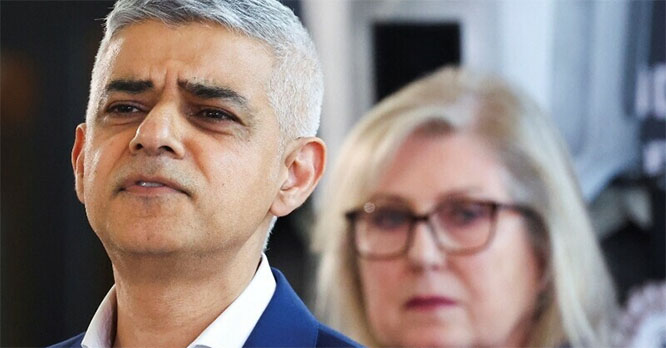Kashgar, Jul 13: Worshippers quietly passed through metal detectors as they entered the central mosque in China's far western city of Kashgar under the stern gaze of stone- faced police officers.

The increasingly strict curbs imposed on the mostly Muslim Uighur population have stifled life in the tense Xinjiang region, where beards are partially banned and no one is allowed to pray in public.
For years, the square outside the mosque in Kashgar was packed with teeming crowds as worshippers jostled for space to unroll their prayer rugs and celebrate the end of Ramadan. But no longer.
This year, an eerie silence hung over the plaza outside the imposing prayer hall as devotees gathered to mark the end of a month of fasting -- the lowest turnout in a generation according to residents.
Authorities declined to comment on the numbers. But local businessmen told AFP the government had used the multiple checkpoints encircling the city to prevent travellers to Kashgar from joining Eid prayers.
"This is not a good place for religion," said one trader.
Beijing says the restrictions and heavy police presence seek to control the spread of Islamic extremism and separatist movements, but analysts warn that Xinjiang is becoming an open air prison.
China is "essentially creating a police state of unprecedented scale," said James Leibold, an expert on Chinese security at Australia's La Trobe University.
The government began ramping up security and religious restrictions in Xinjiang in 2009, following a series of riots in the regional capital Urumqi that left around 200 dead.
In March, President Xi Jinping ordered security forces to build a "great wall of steel" around the region after Uighurs claiming to belong to a division of the Islamic State group in Iraq threatened to return home and "shed blood like rivers".
Over the last year, Beijing has flooded Xinjiang with tens of thousands of security personnel, placed police stations on nearly every block, and rolled out tough regulations aimed at "eliminating extremism".
Public signs say no one is permitted to pray in public or grow a beard before the age of 50, while government employees are forbidden from fasting during Ramadan.
In Tashkurgan, near the Pakistan border, authorities shut a halal restaurant as "punishment" for refusing to serve food during the holiday, according to a shopkeeper working next door.
A teacher and a government official told AFP that schools discourage students from using the traditional Arabic Muslim greeting "As-Salaam Alaikum" ("peace be upon you").
"The government thinks this Islamic word is equal to separatism," the official said.
The region's ubiquitous surveillance cameras are particularly abundant in places of worship: an empty mosque in the southern city of Yarkand had three of them pointing directly at the spot where the imam leads prayers. Even more hung from the wooden rafters like bats.






Comments
where is the news , in which muslims kidnapped 13 years old dalit gal ,converted and performed Nikhanama and now she is 3 weeks pregnant and she was gang raped .it happened in Delhi .beauty of Jihadists .
It means 70 lac new anti social & anti national force will be ready in 5 years
35 lac Go Rakshak
35 lac Anti Romeo
Add new comment